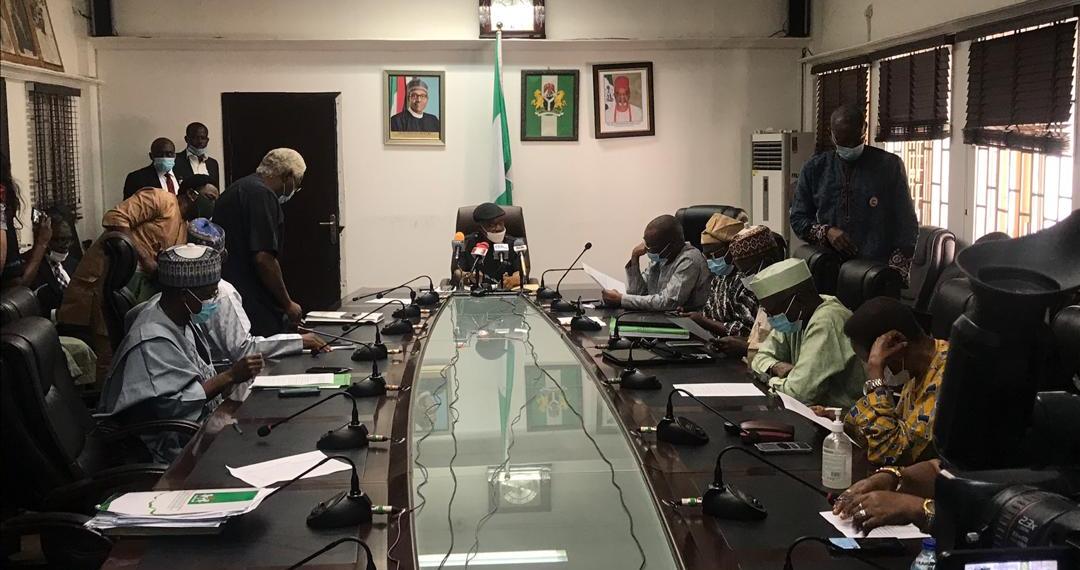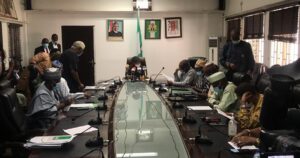

The Academic Staff Union of Universities (ASUU) has hinted at the possibility of an impending industrial action as the national leadership of the union has directed its members nationwide to declare lecture-free day on Monday, February 7, in preparation for a possible showdown with the Nigerian government.
Multiple circulars issued by the various branches of the union announcing the decision noted that the lecture-free day will be used to sensitise the university communities and the general public on the failure of the government to honour an agreement the parties entered into in December 2020, and which led to the suspension of a nine-month prolonged strike then.
The new threat comes less than a week after President Muhammadu Buhari pledged the commitment of his administration to fulfilling the agreement with the union.
Mr Buhari made the promise when members of the Nigeria Inter-Religious Council (NIREC) visited him to share thoughts with him on the lingering issues.
While making the pledge, Mr Buhari, however, pleaded with the union to exercise patience and consider current economic realities.
Suspended strike
The last national strike by ASUU was in March 2020 and lasted till December when the Memorandum of Action (MoA) was signed.
However, a year after signing the MoA, ASUU accused the government of failing to fulfil its side of the bargain and threatened to mobilise for another strike immediately.
The government quickly moved to pay N55 billion as part-payment for the Earned Academic Allowance and Revitalisation Fund, but the union was unmoved until the Nigerian Inter-religious Council (NIREC) and other dignitaries waded in.
ASUU chair speaks
ASUU national president, Emmanuel Osedeke, a professor, confirmed the directive and also that the national body had instructed all the chapters to sensitise the public “on the nobleness of its cause”.
“We are going to have a meeting that day, we will invite as many people as possible to talk about the issue of Nigerian education,” he told our reporter in a telephone interview on Saturday.
ASUU said the Nigerian government has only addressed, partially, two of its eight demands, including the visitation panel to federal universities. He described the release of funds for the Earned Academic Allowance and revitalisation funds as ‘partial’
Mr Osodeke said: “Out of all the nine or eight issues, they attempted one or two things, even the issue of the visitation panel they said they set up till now the result is not out after more than one year.”
Lecture free day
Meanwhile, PREMIUM TIMES has seen the circulars from Usmanu Danfodiyo University, Sokoto; Ahmadu Bello University, Zaria, and Bayero University, Kano, informing students of a lecture-free Monday on February 7.
ASUU assured that its actions are in the best interest of the country’s university system, calling on all to join hands with ASUU in its struggle and save the system from collapse.
Parts of the statement from BUK, signed by Haruna Musa and Yusuf Madugu, chairperson and secretary, respectively, read: “ASUU-BUK wishes to inform all stakeholders that any action taken by ASUU would be in the best interest of the Nigerian university system. The union, therefore, urges all concerned to join hands with ASUU in order to salvage the system from imminent collapse by prevailing on the government to as a matter of urgency implement all the agreements it freely entered with ASUU”.
According to the circulars, the various chapters of the union are also going to hold a congress on that day.
Demands
ASUU’s demands have barely changed since the signing of the ASUU/FG 2009 agreement.
These demands include the sustainability of the university autonomy, which it said the introduction of IPPIS violates; immediate deployment of UTAS to replace IPPIS; renegotiation of the 2009 ASUU-FGN agreement; release of the reports of visitation panels to federal universities and distortions in salary payment challenges.
Others include funding for revitalisation of public universities, earned academic allowance, poor funding of state universities and promotion arrears.

Leave a Reply